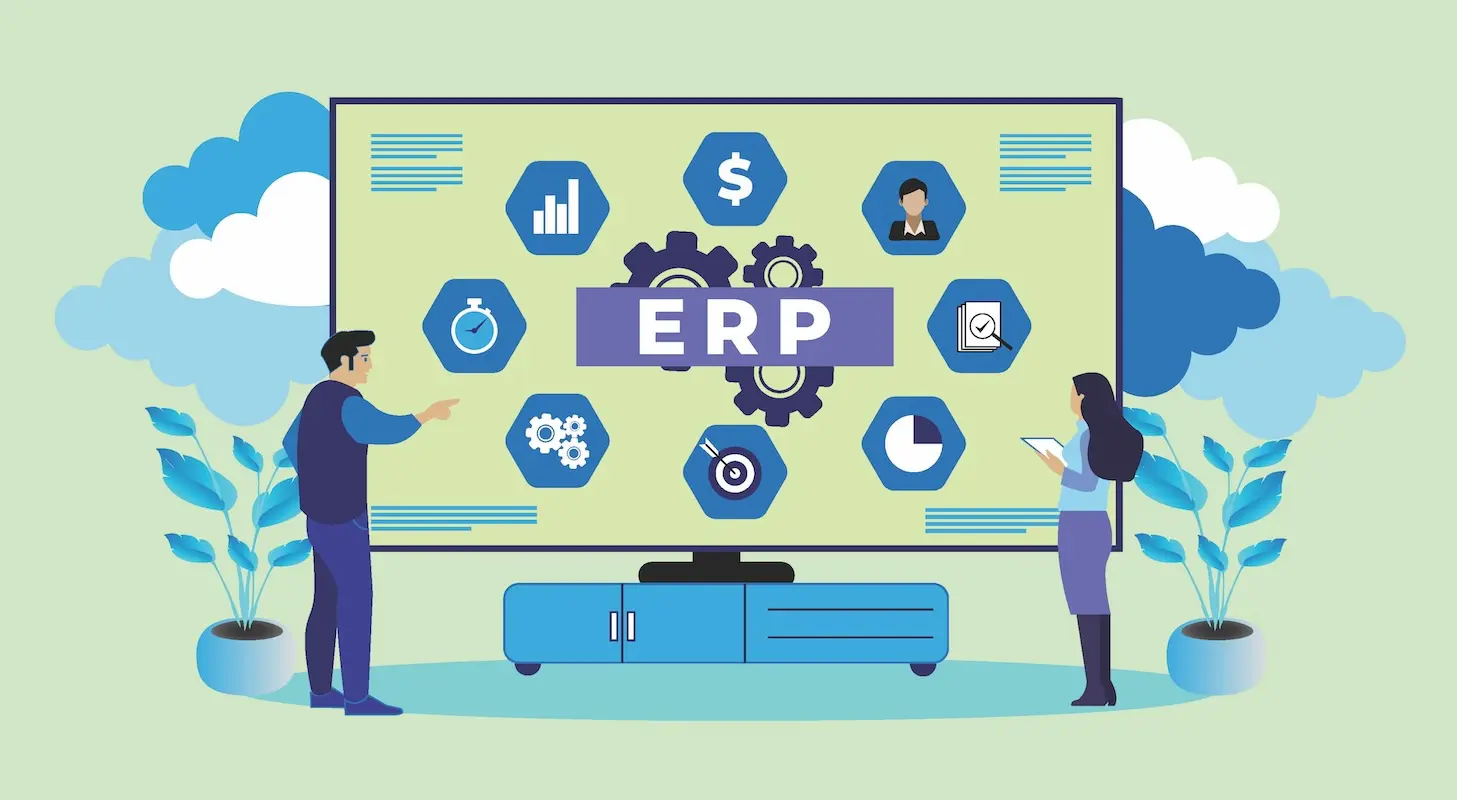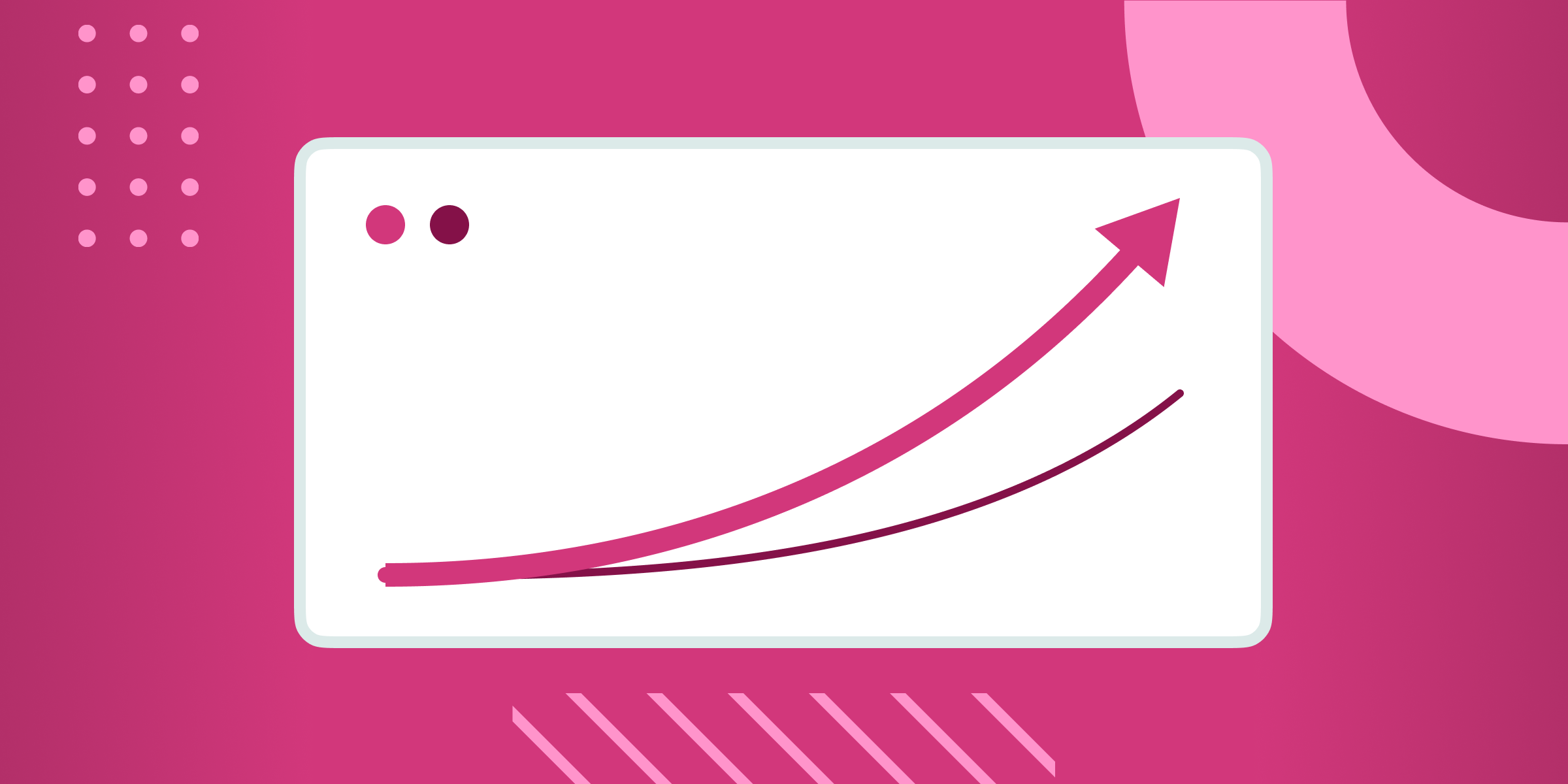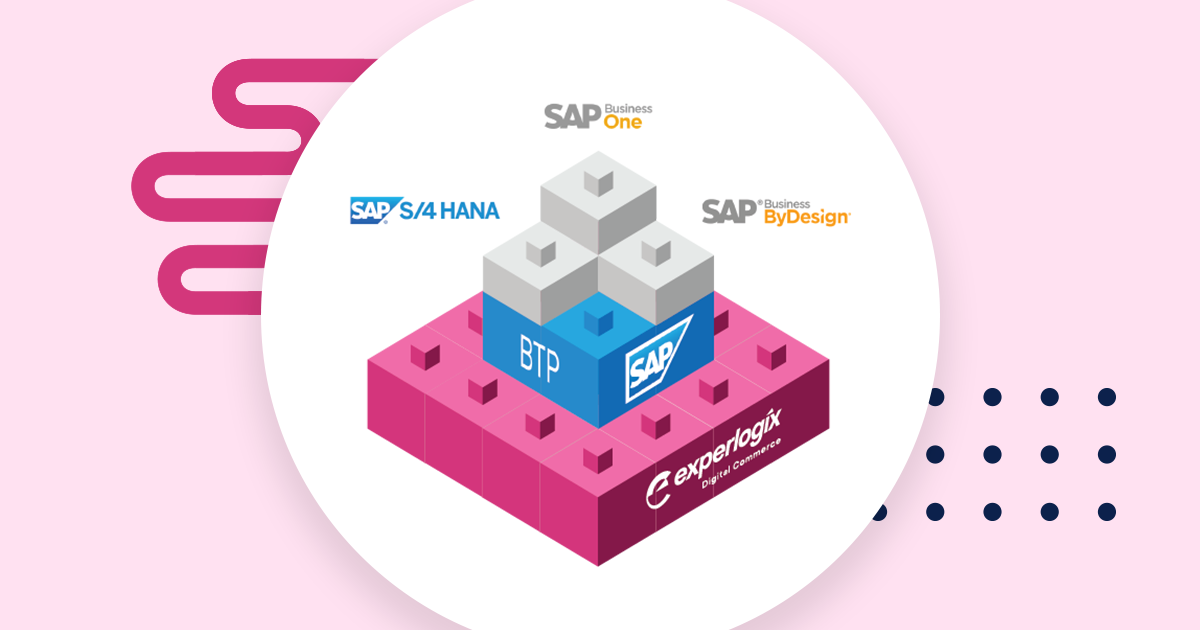SAP B1: Choosing the Right ERP Software in 2024

From SAP B1 to Microsoft Dynamics 365, the 2024 market is flooded with Enterprise Resource Planning (ERP) software options, each one promising a new way to revolutionise operations or drive growth.
The sheer amount of choice when it comes to business software in general makes finding the perfect fit a bit like searching for a needle in a haystack. But this is particularly true for ERP because it juggles so many tasks. Small to mid-size businesses need to find the right balance between software that can scale with them but doesn’t overwhelm them with a lengthy menu of features.
What is ERP Software?
ERP software is a centralised system that brings together multiple business processes into a single platform. Typically, it offers solutions for key business functions, such as accounting, procurement, inventory management, sales, and production, all of which can be customised and configured to meet each organisation’s individual needs.
The main goals of ERP software are to streamline processes, increase productivity, improve customer satisfaction, and enhance decision-making through real-time data and analytics.
Today, 24% of businesses use an ERP solution. Ultimately, it helps them manage everything from finance and human resources to supply chain management and customer relationship management to drive business growth and profitability.
Perhaps one of the biggest benefits of ERP software is its ability to store and manage data from different departments—data that often gets siloed. This fosters seamless communication and collaboration throughout the company and minimises the need for disparate systems and manual data entry.
ERP systems vary in complexity and scope, which can make it tricky to choose the best option. There are solutions made for small-scale businesses in specific industries and comprehensive platforms tailored for huge, multinational corporations. The software you choose, like anything, comes down to several factors, including company size, budget, and scalability needs.
Why Mid-Size Companies Need Great ERP Software
Midsize companies are often described as the Goldilocks of businesses—not too big or too small. But as they start expanding, they hit a bunch of roadblocks that can slow them down (not ideal if you have lofty goals and are enjoying an upward trajectory).
Often, these businesses will hit a critical fork in the road as they grow. With expansion comes several operational challenges that can negatively impact efficiency, including a lack of resources, finding the right talent, and balancing cash flow.
Unlike smaller businesses, mid-size operations tend to have multiple departments—sometimes spread across various locations—which demands a centralised system for communication. A great ERP software acts as the nerve centre of the business, integrating important functions like finance, HR, and supply chain management. By consolidating disparate systems like this, companies can gain more visibility into their operations and make strategic, data-led decisions.
Finally, small to mid-size businesses often struggle to compete with big players in the industry. Staying ahead of the curve requires a certain amount of agility and adaptability. ERP software provides businesses with real-time insights and analytics, which enables them to make quick data-driven decisions. Whether it’s identifying cost-saving opportunities, optimising inventory levels, or responding to changing customer demands, ERP systems have the tools to navigate these issues.
Finding a great ERP software isn’t just about addressing current challenges, but also about laying a robust foundation for sustained growth and competitiveness in the future.
The 9 Best ERP Software Solutions to Help You Speed Up Quote to Cash Cycles
Choosing the right ERP software is paramount in speeding up the quote-to-cash cycle. Here are nine top contenders, each with its own unique features built to streamline this critical business process.
1. SAP Business One (SAP B1)
SAP Business One is an ERP solution made for small and medium-sized businesses. It aims to automate key business functions across finance, operations, and human resources. It’s a Swiss Army knife for midsize businesses in that it’s packed with features that can optimise and transform how they operate (and, as a result, positively impact their growth).
Here are some of the software’s key features for midsize businesses.
- Integrated business processes. SAP B1 provides a one-stop place for businesses to handle core business activities in finance, sales, purchasing, inventory, and CRM. This reduces silos and encourages cross-department communication.
- Scalable options. The software is designed to grow with businesses, allowing companies to easily add users and cherry-pick the most useful features for the stage they’re in.
- Customization. Businesses can tailor the software to their unique processes via custom fields, reports, and unique workflows.
- Real-time insights. The built-in analytics tools provide real-time visibility into key business metrics, which helps businesses make informed decisions.
- Inventory management. Advanced capabilities help companies optimise stock levels, reduce carrying costs, and ensure efficient order fulfillment.
- Sales and customer management. SAP B1 is equipped with several sales and CRM features to help businesses manage leads and customer relationships effectively.
- Financial management. Businesses can streamline their accounting processes, including accounts payable/receivable, budgeting, and financial reporting all in one place.
- Purchasing and supplier management. Powerful integrated purchasing features streamline the procurement process, from purchase requisition to payment, while also helping companies manage and optimise supplier relationships.
- Compliance and regulation. SAP B1 helps businesses stay compliant and meet industry standards through built-in controls and audit trails.
- Customer support and service management. Businesses can enjoy a series of tools for management service contracts, warranties, and support tickets to resolve customer issues quickly and boost customer satisfaction.
2. Oracle NetSuite
NetSuite’s cloud-based ERP solution automates quote generation, order fulfillment, and billing processes to streamline the quote-to-cash cycle. Its CRM and sales automation features help mid-sized businesses effectively manage leads, opportunities, and customer relationships.
Pros:
- A comprehensive suite of tools, from financial management and inventory management to CRM and ecommerce.
- Easy to scale with user add-ons and customisable modules.
- Real-time visibility through a unified dashboard that promotes informed decision-making.
- Personalised user experience with customisable workflows, reports, and dashboards.
Cons:
- The pricing structure can be relatively high for mid-size businesses with limited budgets as it charges per user and module.
- There can be a steep learning curve when implementing and configuring NetSuite and businesses might need to set up training for teams.
- NetSuite’s localisation and regional regulations compliance can be limited compared to other solutions.
- Some users have reported mixed experiences with the platform’s customer support.
3. Microsoft Dynamics 365 Finance & Operations
Dynamics 365’s ERP solution (Finance & Operations) includes tools to help with sales, finance, and supply chains. Its integration with Microsoft Office and other productivity tools encourages seamless collaboration across departments.
Pros:
- Integrates with the entire Microsoft ecosystem which provides a familiar user experience.
- Scalable subscription options that allow users to add new functionalities or users as needed.
- Advanced analytics and AI features help businesses gain valuable insights, predict trends, and make data-driven decisions.
Cons:
- Implementation can be a little tricky for businesses with limited IT resources or expertise, but this is made easier with a hands-on integration like the one with Experlogix.
- The subscription-based pricing model can be pricey for midsize businesses, but this is because Finance & Operations is mostly geared towards enterprise-level companies.
4. Epicor ERP
Epicor was designed as an ERP solution for distribution businesses. It boasts a range of features for inventory and supply chain management that are geared towards B2B ecommerce brands.
Pros:
- Great for businesses operating in the manufacturing, distribution, retail, and service industries.
- Flexible customisation options allow businesses to tailor the system to their unique workflows and processes without extensive coding.
- Detailed reports and analytics that provide real-time visibility into key performance indicators (KPIs).
Cons:
- Some users may find Epicor’s user interface less intuitive than other ERP solutions.
- Integrating the platform with third-party apps sometimes requires additional development work and there can be compatibility issues with certain platforms.
- There are some limitations to the availability and clarity of documentation and training resources which can impact user experience.
5. Acumatica ERP
Acumatica’s cloud-based ERP solution offers integrated sales, inventory, and financial management features to streamline the quote-to-cash process from start to finish. It offers complete scalability with its licensing options and its customisable workflows are valuable to growing businesses.
Pros:
- The cloud-based system makes it easy for businesses to access their ERP system anytime, anywhere.
- Users can easily adjust their subscription plans and add new users, modules, or functionalities as their business grows.
- The modern interface is user-friendly and easy to navigate.
Cons:
- There can be a steep learning curve, especially for those not familiar with cloud-based ERP systems or the Acumatica platform.
- Acumatica ERP has a smaller ecosystem of third-party integrations and add-ons compared to other ERP solutions.
- Some users have reported challenges with the quality and responsiveness of Acumatica’s customer support.
6. Infor ERP
Infor ERP offers industry-specific solutions for manufacturing, distribution, and service-oriented businesses, including advanced analytics that give detailed insights into sales quotes, performance, and customer behavior.
Pros:
- The industry-specific functionalities make it a good solution for manufacturing, distribution, and healthcare businesses.
- Infor was designed to scale with growing businesses, and it’s easy to add users and functionalities.
- The modern user face is easy to navigate and presents information in a clear, easy-to-read way.
Cons:
- While Infor ERP solutions are generally more affordable than some of its competitors, it can still be a significant investment for midsize businesses.
- Customizing the dashboard to meet specific business needs can be complex and require specialised expertise.
- Upgrading to newer versions of Infor ERP solutions can sometimes be cumbersome and disruptive.
7. Solidworks ERP
Solidworks provides ERP solutions for the manufacturing industry, offering a comprehensive suite of features to help with quote management, production planning, and order fulfillment. Its integrated Manufacturing Execution System (MES) improves visibility and control over manufacturing options.
Pros:
- Solidworks is tailored for manufacturing companies, providing industry-specific features and capabilities unique to this sector.
- Real-time visibility into key business metrics.
- Integrated quality management allows businesses to streamline quality control processes, reduce defects, and remain compliant with industry standards.
Cons:
- The cost of Solidworks, including licensing fees, implementation, customisation, and ongoing support can be prohibitive for some midsize businesses.
- Some users find Solidworks less flexible than other ERP solutions, with limited customisation options and rigid workflows.
- Users are heavily reliant on the vendor for updates, support, and maintenance.
8. SYSPRO
SYSPRO is tailored specifically for midsize manufacturing and distribution businesses and includes robust, sector-specific features like inventory management, production planning, and supply chain integration.
Pros:
- Provides tailored features and modules specific to the manufacturing and distribution industries.
- Scalable and allows businesses to expand without outgrowing their ERP system by adding more users, data, and complexity.
- User-friendly interface which makes it easy to navigate and reduces training time.
Cons:
- SYSPRO offers support services, but some users have found it challenging to get timely and effective support, particularly when encountering technical issues.
- Limited third-party integrations can restrict flexibility and make it difficult to use SYSPRO with your existing tech stack.
- Keeping the platform up-to-date with the latest features and security patches can be disruptive and require downtime.
9. Oodo ERP
Odoo is an open-source ERP solution with a comprehensive suite of business applications, including CRM, ecommerce, inventory, manufacturing, project management, and accounting. It’s designed to be highly modular so the solution can grow with you.
Pros:
- The modular design means you can start with the basic functionalities and build out from there.
- The open-source nature of Odoo makes it a very affordable option, with lower upfront costs than proprietary ERP solutions.
- Lots of customisation opportunities through an extensive suite of applications.
Cons:
- While the platform is highly customisable, it can involve a steep learning curve.
- There can be performance issues when companies add lots of applications and begin to scale up.
- There’s active community support, but not a lot of troubleshooting and documentation available.
Forget Features Envy and Find the Right ERP Solution For You
While it’s tempting to be swayed by flashy features or the latest tech trends, the most important consideration is whether the ERP solution you choose can effectively address your specific challenges and requirements. By prioritising functionality over bells and whistles, you can avoid investing in unnecessary features that can complicate implementation and dramatically increase costs.
Instead, approach the ERP selection process with growth in mind:
- Does the platform offer the right balance of core functionalities, customisation options, and scalability?
- Is the platform easy to implement and use or is there a steep learning curve?
- Does the platform offer valuable insights into sales performance and KPIs?
- Does the platform integrate with your existing tech stack?
- Is there ample support and documentation to help your team get to grips with the platform?
Experlogix and SAP B1: Your ERP Dream Team
Enter Experlogix and its SAP B1 integration. This powerful combo extends the capabilities of SAP B1’s ERP system by offering several digital commerce solutions.
With Experlogix’s intuitive interface, users can enable self-service checkout for customers, create dealer portals, and manage their B2B commerce all in one place.
United Hardware had a headache with their old ecommerce system—it just wouldn’t sync up with their SAP B1 ERP. They joined forces with Experlogix to create the “United Toolbox”, a hub where members could find resources and tools such as category, document, and account management. The integration has created effortless catalog management, freeing up team time so they can focus on other strategic business activities.
It’s been a similar story for Time Products. Since integrating SAP B1 with Experlogix, they’ve been able to transmit real-time pricing, stock, and account data from SAP B1, reduce manual order processing, and enrich customer service.
Functionality Over Flashy Features, Always
Choosing the right ERP software can eliminate growth roadblocks and help midsize businesses seamlessly smash through their goals and objectives. It’s important to prioritise functionality over flashy features and ensure the solution you choose aligns with your specific business needs and budget constraints.
Remember, the goal isn’t just to address the current challenges you’re facing, but to lay a foundation for future growth and competitiveness.
Ready to accelerate your B2B sales? Get in touch to chat about how we can make digital work for your business.



